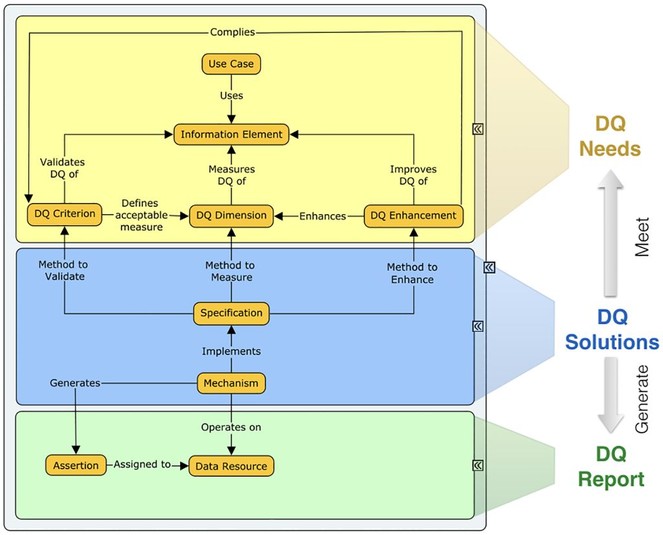|
Proceedings of TDWG : Conference Abstract
|
|
Corresponding author: Allan Koch Veiga (allan.kv@gmail.com), Antonio Mauro Saraiva (saraiva@usp.br)
Received: 14 Aug 2017 | Published: 14 Aug 2017
© 2017 Allan Veiga, Antonio Saraiva
This is an open access article distributed under the terms of the Creative Commons Attribution License (CC BY 4.0), which permits unrestricted use, distribution, and reproduction in any medium, provided the original author and source are credited.
Citation: Veiga A, Saraiva A (2017) Toward a Biodiversity Data Fitness for Use Backbone (FFUB): A Node.js module prototype. Proceedings of TDWG 1: e20300. https://doi.org/10.3897/tdwgproceedings.1.20300
|
|
Abstract
Introduction: The Biodiversity informatics community has made important achievements regarding digitizing, integrating and publishing standardized data about global biodiversity. However, the assessment of the quality of such data and the determination of the fitness for use of those data in different contexts remain a challenge. To tackle such problem using a common approach and conceptual base, the TDWG Biodiversity Data Quality Interest Group - BDQ-IG (https://github.com/tdwg/bdq) has proposed a conceptual framework to define the necessary components to describe Data Quality (DQ) needs, DQ solutions, and DQ reports. It supports a consistent description of the meaning of DQ in specific contexts and how to assess and manage DQ in a global and collaborative environment
Material and methods: This prototype was built using Node.js, an asynchronous event-driven JavaScript runtime, which uses a non-blocking I/O model that makes it lightweight and efficient to build scalable network applications (https://nodejs.org). In order to facilitate the reusability of the module, we registered it in the NPM package manager (https://www.npmjs.com). To foster collaboration on the development of the module, the source code was made available in the GitHub (https://github.com) version control system. To test the module, we have developed a simple mechanism for measuring, validating and amending the quality of datasets and records, called BDQ-Toolkit. The source code of the FFUB module can be found at https://github.com/BioComp-USP/ffub. Installing and using the module requires Node.js version 6 or higher. Instructions for installing and using the FFUB module can be found at https://www.npmjs.com/package/ffub.
Results: The implemented prototype is organized into three main types of functions: registry, retrieve and print. Registry functions enable the creation instances of concepts of the conceptual framework, as illustrated in Fig.
The conceptual framework: Concepts and classes. DQ Needs concepts: Use Case, Information Element, DQ Dimension, DQ Criterion and DQ Enhancement. DQ Solutions concepts: Specification and Mechanism. DQ Report concepts: Data Source and Assertion (
Final remarks: This module provides a practical interface to the proposed conceptual framework. It allows the input of instances of concepts and generates, as output, information which allows the DQ assessment and management. Future work includes creating a RESTful API, based on the functions developed in this prototype, using sophisticated methods of data retrieving based on NoSQL databases.
Keywords
data quality, biodiversity data quality, fitness for use, conceptual framework
Presenting author
Allan Koch Veiga
References
-
A conceptual framework on biodiversity data quality.Ph.D. thesis. Universidade de São Paulo, São PauloURL: http://www.teses.usp.br/teses/disponiveis/3/3141/tde-17032017-085248/
-
A conceptual framework for quality assessment and management of biodiversity data.PloS one12(6):e0178731. https://doi.org/10.1371/journal.pone.0178731
